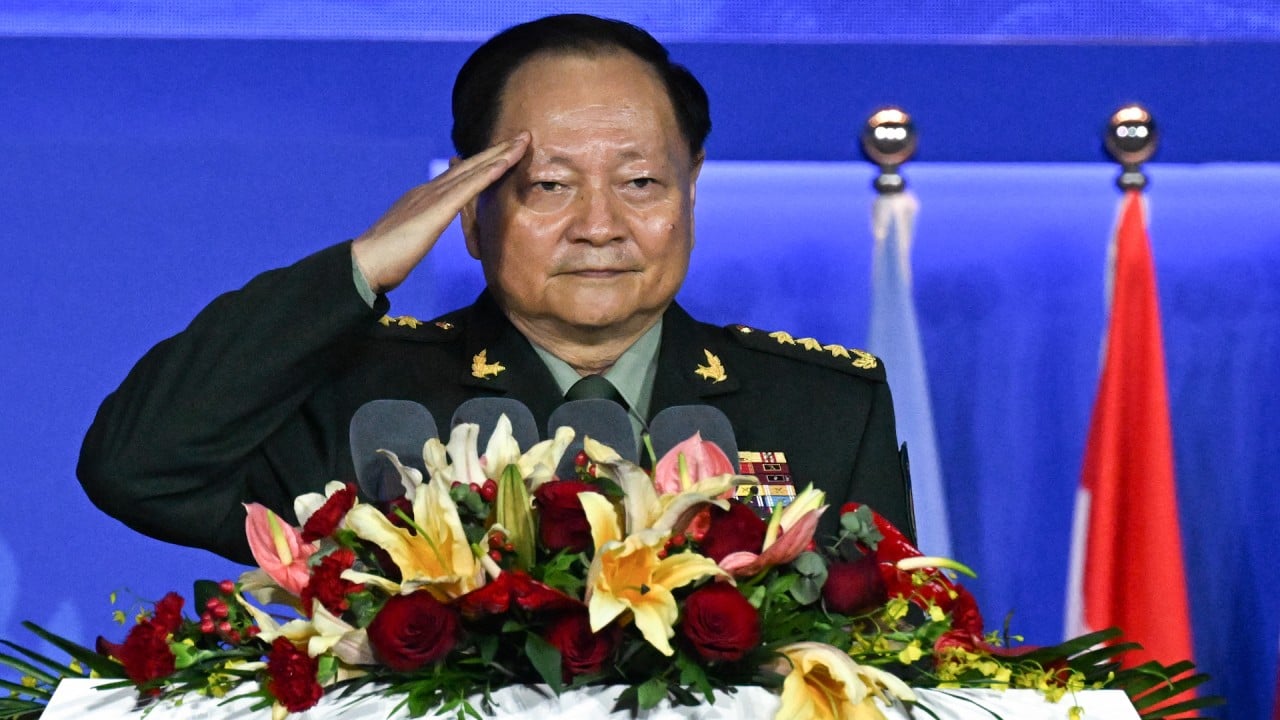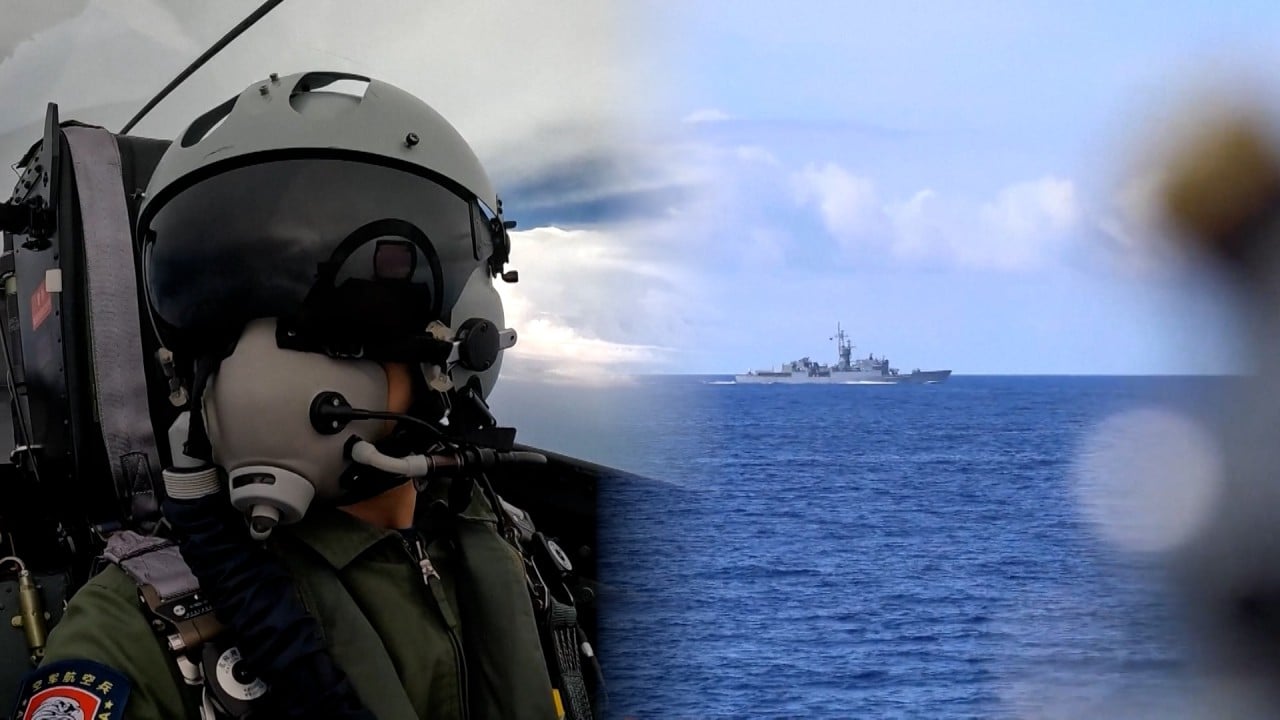“It was a significant step towards restoring relations between the two militaries,” said Wu Xinbo, director of the American Studies Centre at Fudan University in Shanghai. The discussions would not resolve “hardcore” geopolitical disagreements over Taiwan and the South China Sea but could help to avoid a crisis, he said.
The US chairman of the Joint Chiefs of Staff, General Charles “CQ” Brown, talked with China’s General Liu Zhenli for the first time on Thursday via video link. The Chinese defence ministry said Liu, the chief of the Joint Staff Department, had raised those contentious issues, while Washington said they discussed unspecified global and regional security issues.
Taiwan warned PLA is watching after Beijing sends up more satellites
Taiwan warned PLA is watching after Beijing sends up more satellites
The joint staff chiefs of China and the US last met 17 months ago in July 2022. Their defence ministers, who outrank the joint staff chiefs, last met in November 2022, three months after Nancy Pelosi travelled to Taiwan. Infuriated by the visit, Beijing then halted calls between theatre commanders, as well as defence policy meetings and maritime safety discussions.
Those communication lines were restored after Chinese President Xi Jinping met his counterpart Joe Biden near San Francisco on November 15.
Pelosi, then US speaker of the House, had led a US delegation to Taiwan to show support for the island’s democracy. Beijing described the trip as US support for the Taiwanese independence movement.
On the call on Thursday, Liu put the onus of improving US-China military ties on Washington, saying it was key for the US to “understand China correctly” and respect China’s “core interests and major concerns”, according to the defence ministry.
It quoted Liu as saying that “foreign forces” must not interfere in the issue of Taiwan and that the US should respect Beijing’s territorial claims and sea rights in the South China Sea.
The US statement said Brown had talked of the importance of the two military powers managing competition and keeping dialogue open, including restarting telephone calls between leaders of the US Indo-Pacific Command and China’s Eastern and Southern Theatre Commands.
Beijing rebukes Washington after warning off US warship in South China Sea
Beijing rebukes Washington after warning off US warship in South China Sea
Pentagon spokesman Major General Patrick Ryder said on Thursday that he had nothing to announce when asked if the hotline between the US and Chinese militaries would be reactivated.
However, Fudan University’s Wu said: “Resuming military dialogue will not lead to a change on both sides over their positions on the Taiwan Strait or the South China Sea.”
Beijing sees Taiwan as a breakaway province to be united with the mainland, by force if necessary. The US and most other countries do not recognise Taiwan as independent, but Washington opposes any attempt by Beijing to take the island by force.
Washington has supported the Taiwanese government’s participation in international affairs and is required by US law to help arm the island for self-defence.
But Wu said dialogue between theatre commanders could help to prevent a military crisis by allowing US troops to directly and quickly speak to frontline Chinese troops of the Eastern and Southern Theatre Commands.
Taiwan falls within both commands, while the Southern Theatre Command oversees the South China Sea, which Beijing claims most of despite an arbitration ruling in The Hague that invalidated its claims in 2016.
The US and its Asian allies have complained about “dangerous” and “unprofessional” manoeuvres by the People’s Liberation Army including close intercepts in and over the South China Sea. But Admiral John Aquilino, the US Indo-Pacific commander, said on Monday that China had not had a close encounter with US military ships or planes since Biden and Xi’s meeting.
“A good beginning does not necessarily mean [the deal is] half-done,” Zhou Bo, a senior fellow at Tsinghua University’s Centre for International Security and Strategy, said of Brown and Liu’s call.
The call was meaningful because the two counterparts were directly in charge of military actions, the retired PLA senior colonel said. This first meeting between them could help to facilitate communication and avoid misjudgment, Zhou said.
“The actual impact of the talks and the resumption of military dialogue is yet to be very clear,” he said. “Is it old wine in a new bottle or a mixture of old and new wine?”
He said he was unsure of the new developments in maritime safety talks, adding that China and the US still needed to map out the details for the theatre commander talks, such as their geographical scope and the personnel responsible.
“Both sides agree that conflict should not happen but they disagree deeply on what can be done to prevent conflict,” he said.
Liu is ranked behind the defence minister in China’s Central Military Command, the top military decision-making body. Unlike other countries, China’s defence minister is mostly a diplomatic role and has minimal involvement in combat commands.



